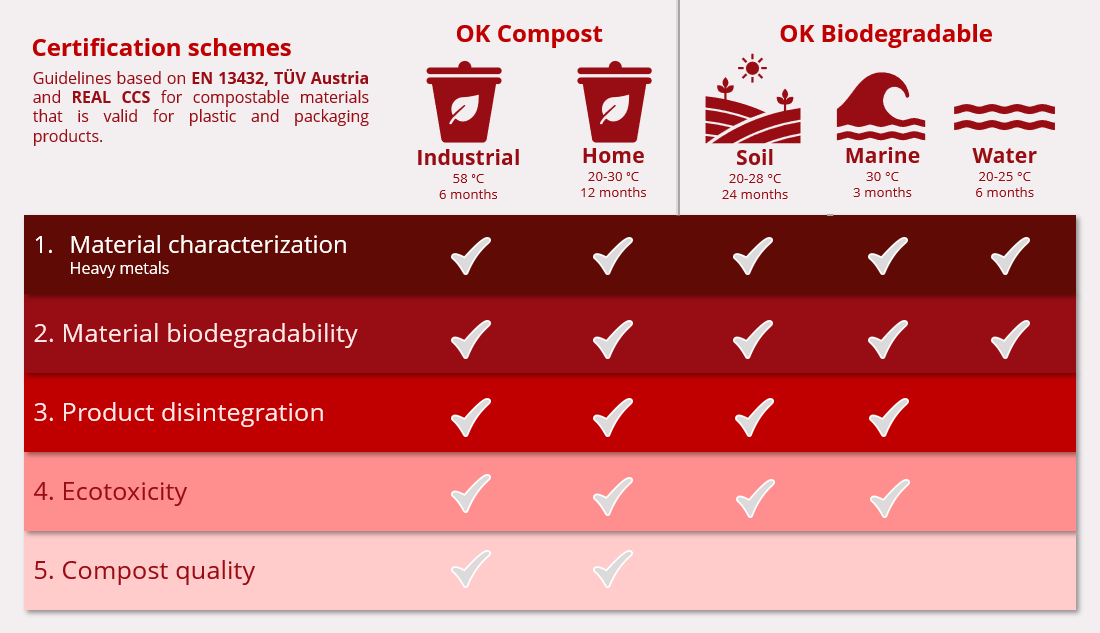
Bioplastic and biodegradability
Collaborating with us on biodegradability not only ensures compliance with environmental regulations and standards but also helps you develop more sustainable and environmentally friendly products.
The Danish Technological Institute can assist you in assessing the biodegradability and compostability of various materials, such as plastic formulations, binders, textiles, and packaging, in different media such as soil, compost, wastewater, and marine environments. This is crucial at a time when the reduction of environmental pollution and new regulations require the development of alternatives to fossil-based plastics.
Our evaluation include:
- Aerobic biodegradability: Simulated degradation occurs in various environments under controlled laboratory conditions. The degradation of the material is compared to a reference substance to determine its biodegradability and degradation rate.
- Anaerobic biodegradability: The biological degradability of materials is assessed under anaerobic conditions in bio-digestion and aerobic sludge treatment according to OECD 302 B guidelines. This assessment influences recommendations for the use of bio-packaging.
- Testing for compostability: A disintegration test evaluates the breakdown of the material in compost or a microalgae solution. Compostability is determined through a physical sieving test.
- Ecotoxisity in higher plants: The compost from the disintegration test is used and compared to traditional compost with regards to seedling and growth given types of plant seeds.
- Preparation for certification and R&D tests At our institute:
We perform tests following standard EN 13432 and N FT, including all 5 levels of tests mentioned in fig. 1.

Fig.1: Most common tests vi perform in our test laboratory. Those we can follow or adjust in custom made test set ups. Is a needed standard missing, please contact us.
We conduct these tests in two ways:
- Test according to the full standard for certification of the testing material:
This test screens different selected materials to determine their biodegradable and compostable characteristics and readiness for certification. Following standard EN 13432, all five levels of test must be passed to meet certification requirements. After the test, you will know whether further development of the material is needed or if it is ready for certification. It is possible to test all five levels or select specific tests to evaluate your material.
2. R&D test that follows the standards with adjustments are customized:
The adjustment could include extending or shortening the testing period. The test environment for the material could be adjusted to e.g. different kinds of soil or compost. The temperature could also be adjusted, as we did for the Danish environmental safety tests where we adjusted the temperature to real Danish conditions. Get your bioplastic to know
Get your bioplastic to know
Besides the performance of biodegradability and compostability tests we also conducting quality tests to increase basic physical understanding as well as product performance tests. In that way we are helping you to increase understanding of your new bioplastic and how it could be applied as product.
Your benefits with collaborating with Danish Technological Institute:
- Insight into a material's biodegradability under aerobic and anaerobic conditions
- Supportting your material development
- Getting ready for certification of your material
- Independent R&D tests with adjusted standard conditions to fit specific needs
How can Danish Technological Institute assist you?
- Third party tests follow the standards
- Report and documentation of all conducted tests
- Advising for tests and potential adjustments of ISO standards